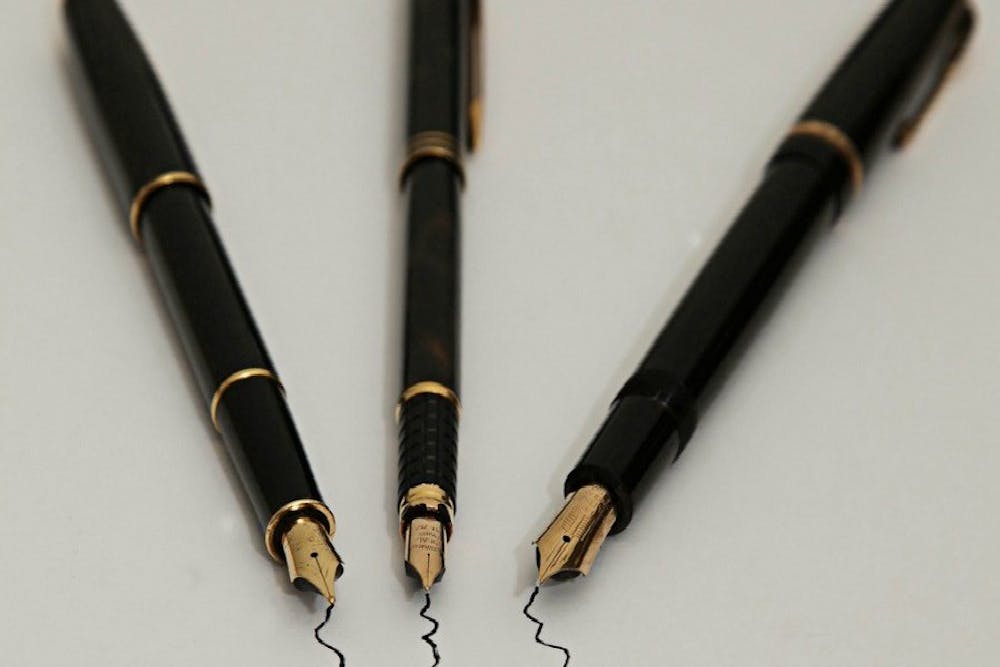By Ellen Stenstrom, For The Miami Student
"Is someone else oppressing you, or are you oppressing yourself?"
If I could share one piece of wisdom from last Monday's creativity panel, it would be these words, spoken by esteemed author and visitor to Miami, Kathryn Davis.
On Monday afternoon, Miami hosted author Kathryn Davis of Washington University in St. Louis, and two of our own professors and published writers, Margaret Luongo and Cathy Wagner.
The women offered their words of wisdom, experience and advice regarding writing and creativity in general. That night, Davis read from her newest novel, "The Silk Road," and answered questions from curious listeners.
I remember the day in third grade I decided to be an author, and since then, despite several periods of writer's block (can you still call it that if it lasts for a year?), I knew that one day I would publish my own novel.
So, for me, this discussion was personal and relatable on a very direct level. However, I would argue that some of the most valuable things said were not just about writing, but about life, and I wish that more students had been present to hear them.
As you've hopefully heard at some point by now, President Hodge declared this the Year of Creativity and Innovation. First-year students were required to read The 46 Rules of Genius: An Innovator's Guide to Creativity by Marty Neumeier. A series of lecturers have been brought in throughout the year to speak on the subject, and this was yet another extension of the project. Before you roll your eyes and abandon this article, consider this: what career path out there doesn't require some degree of creativity?
The panel first discussed constraints on creativity, posing the question of if there can even be creativity without constraint. All three writers discussed the structure and time restraint they put on themselves in order to be productive. Luongo offered her own insight, pointing out that her most productive and successful work has been done under some sort of restraint.
I know that this has been incredibly true in my life as I think about nights that I start my homework latest also being the nights that I get it done the fastest. However, the panel also pointed out that, as creative beings, we like to wait until the "right time" to start a project, whatever that may look like for you.
As well-intentioned as this may be, we often prevent ourselves from even starting. Their encouragement, which I would now pass on to you, is that if we keep waiting for the perfect time, we'll never start because it'll never come. The timing doesn't have to be perfect. You don't have to be perfect. You just have to sit yourself down and start.
The other main point of discussion was about where creative ideas come from in the first place. Though each writer talked about incorporating conflict from her own life as a means of resolution, Davis also pointed out the importance of "not knowing where you're going." She explained that, to a degree, writers (or creative people in general) don't usually know the outcome when they begin, and that it's important to be at peace with that.
Perhaps what hit closest to home with me was Luongo's comments about failure, not because it will help me write, but because it will help me live a fuller life. When we're creating, she explained, we can't be afraid of failing, or that we're wasting time on something that won't work. As students, employees and just as humans, we have to be okay with the prospect of failure and be willing to acknowledge that a failed product is never wasted because of what it taught us along the way.

